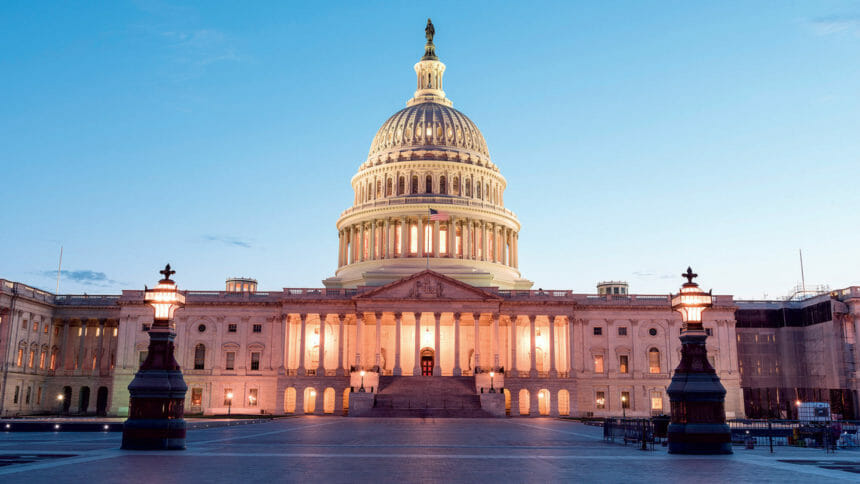
The Senate approved a weeklong stopgap spending bill Friday to buy time for an elusive pandemic aid bill that already has endured months of fruitless haggling among lawmakers. At this point, bipartisan talks on a nearly trillion-dollar coronavirus relief bill appear to be hung up on disagreements between Republicans and Democrats around state aid and shielding businesses from virus-related lawsuits.
“My sense is that they’re not going to get there on the liability language,” Sen. John Thune (R-SD) said last week. “They’re just not going to be able to thread the needle.”
A key goal of Democrats is to keep COVID-19 lawsuits under state law and allow state legislatures time to further craft their own liability shields, according to an article in Bloomberg Friday. Led by Senate Majority Leader Mitch McConnell (R-KY), Republicans want to ensure that lawsuits against employers are tried in federal and not state courts. McConnell has suggested scrapping both the liability and state aid provisions at this point in an effort to get a swift agreement on a narrower package that would include funding vaccine distribution and the Paycheck Protection Program.
Lawmakers involved in developing the Bipartisan Emergency COVID Relief Act of 2020, the framework of which was introduced Wednesday, have warned that time is waning for lawmakers to resolve policy divisions. Several government programs and policies that are helping insulate millions of Americans from the economic consequences of the pandemic are set to expire in the coming weeks.
Long-term care leaders also continue to advocate for another relief bill to provide needed aid to aging services providers.
“Hope is finally in the air as the rollout of the long-awaited COVID-19 vaccine nears, but no vaccine is a magic wand,” Katie Smith Sloan, president and CEO of LeadingAge, said in a statement Friday. “Staggering and unsustainable COVID-related costs continue to mount for aging services. Some providers are shutting down, and more will follow. Congress must step up to meet this real and desperate need. The final COVID-19 relief bill should include support and resources targeted to aging services providers at levels that reflect this extraordinary crisis.”




